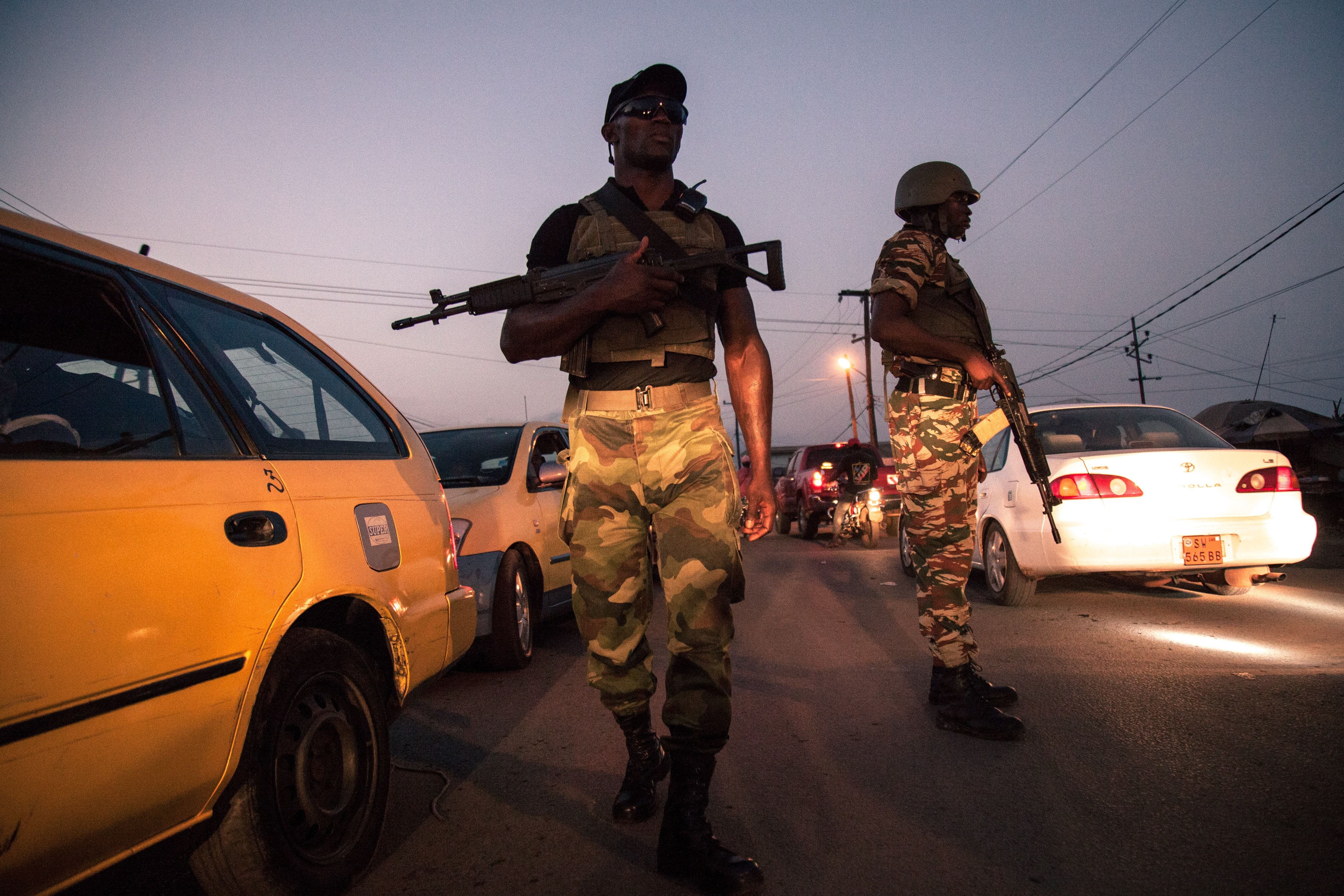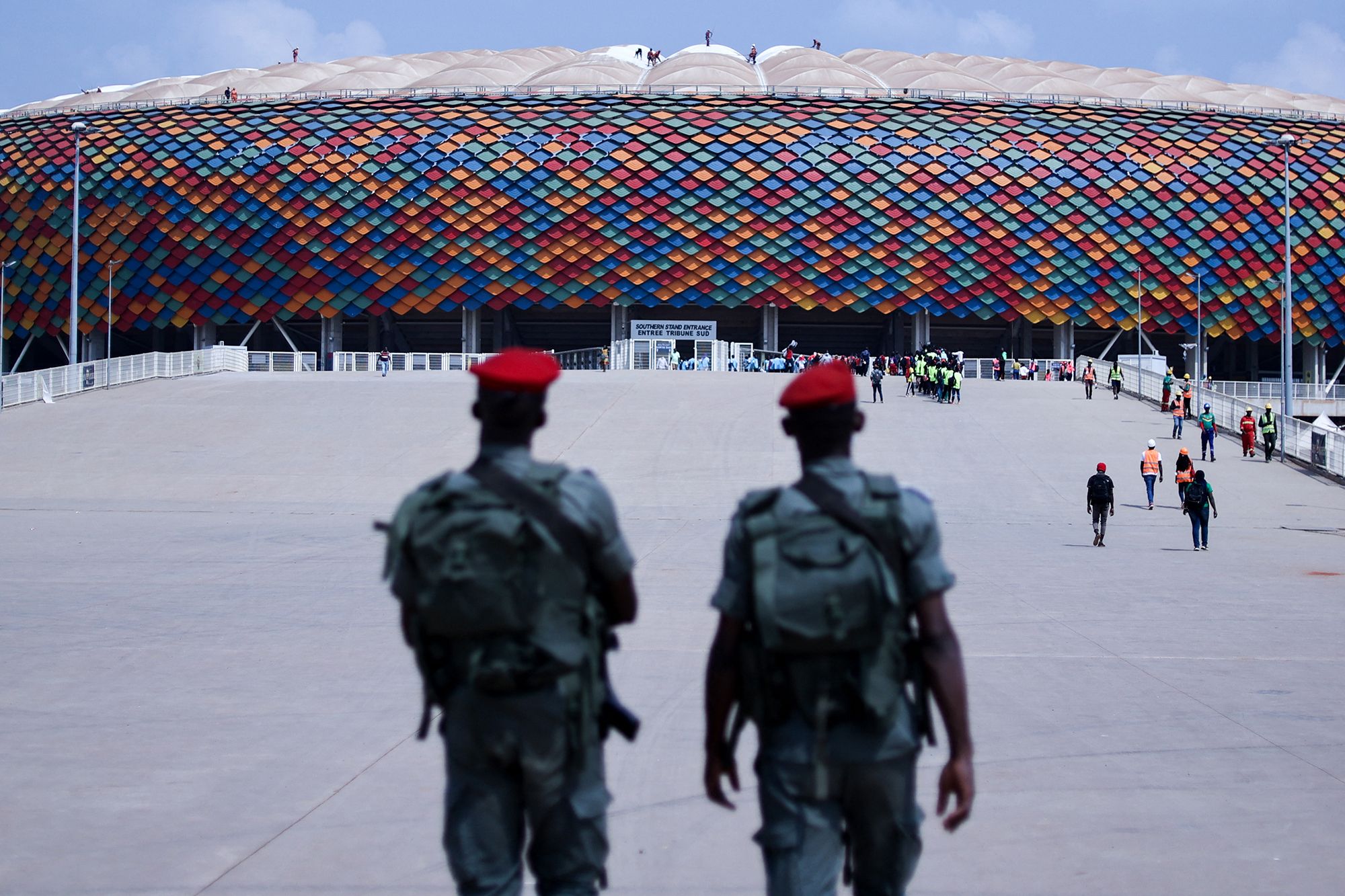Civil war gives Cameroonians little to cheer about at Africa Cup of Nations
Security officials in southwest Cameroon are on red alert and locals are afraid as separatist fighters threaten to target the Africa Cup of Nations, reports Josiane Kouagheu in Limbe

For more than two decades, Paul Sebastian was an avid follower of the Cameroonian football team: buying all the kit, watching every match on TV, and even travelling abroad to see them play.
Yet as Cameroon prepares to host the Africa Cup of Nations (Afcon) starting on Sunday, the father-of-three will not be tuning in.
Furthermore, he wishes the tournament wasn’t happening at all – especially in his city of Limbe, home to one of the country’s six Afcon stadiums. He is far from the only one who feels that way in southwest Cameroon, one of the country’s two Anglophone regions riven by civil war since 2017, when conflict broke out between separatist fighters and government troops in the largely Francophone nation.
More than 3,500 people have been killed and about a million forced to flee their homes as the secessionists strive to form a breakaway state called Ambazonia – frustrated by what they see as marginalisation by the government.
For Mr Sebastian, the violence is personal and has made football pale into insignificance. “I lost my two young cousins in 2018 … My uncle was killed in his house in 2019,” the 48-year-old tells The Independent. “Football is my passion … but I am no longer interested. Nobody in the Anglophone regions can be happy and celebrate this Afcon.”
Many residents of Limbe are not only disillusioned but scared ahead of the tournament as violence has intensified over the past year, with dozens of bombs being set off and several civilians, including children, having died.
You cannot watch football while your people are suffering
Separatist leaders are warning Cameroon’s president Paul Biya that they will target matches in the city unless government soldiers are withdrawn from the region.
“The freedom of the people of Ambazonia is far more important than any nonsense in the name of Afcon,” Langmi Nestor, spokesman for the Ambazonia National Self Defence Council – an umbrella organisation of different militias – said last month.
At least four bombs have been detonated since November in Limbe’s neighbouring city of Buea – the capital of the southwest – and the latest blast, which injured several people, was claimed by a separatist group that denounced the staging of Afcon matches in the region.
Near the university in Buea, 20km (12 miles) from Limbe, 31-year-old ice-cream seller Kennedy Kangha said he was afraid of violence during the tournament.
“I won’t go to the stadium to watch the games because anything could happen. I’m afraid of bomb attacks.”

Even Afcon’s official mascot, Mola the Lion, wore a bulletproof vest and was afforded an armed escort on a recent tour of the Anglophone region to promote the tournament.
Paul Atanga Nji, permanent secretary of Cameroon’s National Security Council, said last month that regional governors were working to promote “peace, unity, and tranquility” during Afcon. “Any attempt to disrupt public order will be dealt with squarely,” Mr Nji said in early December.
In Limbe, where the Omnisport Stadium will host games from Group F, featuring Tunisia, Mali, Mauritania and Gambia, soldiers in armoured vehicles are patrolling the streets while there are checkpoints on roads into the city.
Authorities have been carrying out drills to prepare against potential terror attacks, ranging from explosions to hostage scenarios. They already have some real-life experience.
During last January’s African Nations Championship in Cameroon, police officers were hurt when bombs were set off near Limbe’s stadium, but officials say they are better prepared this time around.

“We have increased security. We have taken many measures,” a member of the military in Limbe tells The Independent on condition of anonymity. “All the units, even the bomb disposal units, are ready,” he adds.
Volunteers have also been recruited to support security officials and police.
“We will make sure that people don’t bring guns to the stadium … that there will be no trouble,” says Neil Ronald Sama, a 32-year-old private security guard and Afcon volunteer.
While security preparations are focused on Limbe, given the severity of the Anglophone crisis, there is also a real risk of violence elsewhere in Cameroon during the tournament.
The government of President Biya – one of Africa’s longest-serving rulers, having been in power since 1982 – is also dealing with the threat of the Islamist militant group Boko Haram in the north of the country, and rebels from the Central African Republic in the east.
Nine of Cameroon’s 10 regions are mired in humanitarian crises as a result of violent conflict, according to the International Crisis Group, a think tank based in Brussels.
The coronavirus pandemic is also a concern, with several players from participating nations having tested positive in recent days, including Gabon’s Arsenal star Pierre-Emerick Aubameyang. To attend matches, fans must be double jabbed – the country’s full vaccination rate stands at 2.5 per cent – and show a negative PCR test, while the stadiums have been largely limited to 60 per cent of their capacity.

While smaller crowds will likely lead to disappointment in the capital Yaoundé and Cameroon’s largest city Douala – where excitement is building among football-mad locals – the mood is very different in Limbe.
At one public market, football shirt seller Fidelis is struggling to sell his wares and says he has never faced “such a horrible period” in his 35 years trading sports merchandise.
“I’m selling (Cameroon football merchandise) but I am afraid,” says the 52-year-old, who only gave his first name. “People are not buying … They are also afraid.”
Walking past Limbe’s Omnisport Stadium, which will host its first match on 12 January, football fan Jackie says she just cannot get excited about Afcon in light of the conflict.
“Football is something that I really like … The majority of Cameroonians love this sport,” she says, asking not to be named.
“But you cannot watch it while your people are suffering. We are really, really suffering.”






Join our commenting forum
Join thought-provoking conversations, follow other Independent readers and see their replies
Comments